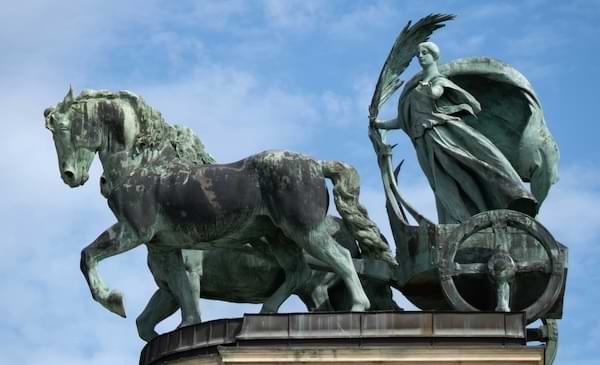A Lenten lesson from the Guthrie family
“He is the radiance of the glory of God and the exact imprint of his nature, and he upholds the universe by the word of his power. After making purification for sins, he sat down at the right hand of the Majesty on High.” —Hebrews 1:3
Christians around the world are beginning the Lenten season, a time of spiritual preparation for Easter Sunday. Different denominations have different traditions for this season, but the purpose is the same. How can we prepare ourselves to deeply honor and worship the One who carried his cross and accepted his pain-filled death for the sake of our sins?
I have often thought about the fervor of the nation, even the world, for any breaking news about the Guthrie family. As I write this article, Nancy Guthrie has not yet been found, and no suspect(s) have been arrested. I’m seeing fewer stories about Nancy’s abduction now, and while the interest is still high, the fervor is likely to wane until there is new evidence or more conclusive resolutions in the future. I’m praying that news will precede the publication of this article.
Regardless, my Lenten lesson remains the same.
I was thinking about and praying for the Guthrie family when I had a new thought. I considered the fact that this article would be sent out on Ash Wednesday. My previous thoughts and prayers for the Guthrie family led me to some new thoughts that inspired this post.
When I considered the fervor that our world has rightfully felt for the abduction of Nancy Guthrie, I recognized that the enormous interest was due to the horrendous details in this story of injustice. This is a crime story about an innocent, elderly woman. But the story is also magnified in the media because of the popularity of her daughter, Savannah.
My thought: The Lenten season is about the death of the innocent Son of God and the injustice and abuse he endured. How might God’s children work to increase the fervor the world feels for our Lord and our heavenly Father during this holy season of Easter?
How can our spiritual fervor for Jesus bring glory to God?
How can our lives draw fervent attention to our Father?
I love seeing pictures of Savannah Guthrie with her mom. The love between the two is evident in their smiles. Nancy Guthrie made several television appearances and other prominent appearances with her daughter. The world was able to witness their relationship, and now the world wants to share in her family’s grief, fears, hope, and prayers. Hopefully, one day soon, people will also share in her joy.
Most of us won’t draw as large an audience as the Guthrie family, but we all have circles of influence. Will people see the way God’s children love Jesus in the coming weeks leading up to Easter?
Jesus was fervently praying in the Garden, knowing the soldiers marching toward him would lead him to his death. Our Lord prayed, “I glorified you on earth, having accomplished the work that you gave me to do. And now, Father, glorify me in your own presence with the glory that I had with you before the world existed” (John 17:4–5).
Jesus lived to bring God glory with his life, and he prayed his death would do the same. Jesus taught his disciples to share that same purpose when he said, “In the same way, let your light shine before others, so that they may see your good works and give glory to your Father who is in heaven” (Matthew 5:16).
Jesus gave his life so that all people could know his Father and live eternally in his Presence. How can we use this Lenten season to join in that holy priority?
How do people bring God glory?
- “For you were bought with a price. So glorify God in your body” (1 Corinthians 6:20). Paul wrote those words to the Corinthians, many of whom were Gentiles who wanted to believe their assurance of salvation gave them the freedom to sin without consequence. Paul made it very clear that obedience to God’s laws would bring him glory and disobedience would not. Jesus paid for our sins to be forgiven eternally. The consequences of our sinful choices often follow us throughout our lives. If we do not glorify God with our choices, we do not honor the enormous price Jesus paid. On this Ash Wednesday, we can consider those who might not want to know our Lord because of our sinful choices. We can pray about that, knowing that we serve a God who can give us second chances.
- “Glory to God in the highest, and on earth peace among those with whom he is pleased!” (Luke 2:14). The angels said this to the shepherds in the field. It is one of the profound moments in the Christmas story. The angels were not sent to the religious leaders of the day, or even the faithful people camping out in Bethlehem. Could it be that it was the shepherds whose lives and worship pleased him more than many others? Do our lives and worship please God?
- Peter wrote to the church saying, “But grow in the grace and knowledge of our Lord and Savior Jesus Christ” (2 Peter 3:18). We can use this Easter season as an opportunity to “grow” in both grace and knowledge of Jesus. If we choose to live with spiritual fervor for our Lord, others will take note.
The Guthrie family has paid a high price already
Savannah Guthrie has made her faith in Jesus a very public witness. We should pray for her to have the spiritual strength to continue to do that, speaking through the power and strength of his Holy Spirit. She is in the public eye and as human as anyone else. She and her family will need the prayers of God’s people in the days ahead so their lives can be used to bring glory to God.
The news media’s fervor will shift to other subjects. The media is not our example; Jesus is. How can we maintain our own fervor for the Lord during this Lenten season?
Let’s examine our own spiritual fervor
As we enter the Lenten season, let’s examine our spiritual fervor for Jesus and the sacrificial gift of Easter. God loved everyone in this world so much that he gave us his Son (John 3:16). Jesus continued his earthly ministry through his disciples in the first century. His holy purpose is still achieved through each disciple who will yield to his Holy Spirit. God’s children still exist in this world to bring glory to the Father. How might we do that today?










